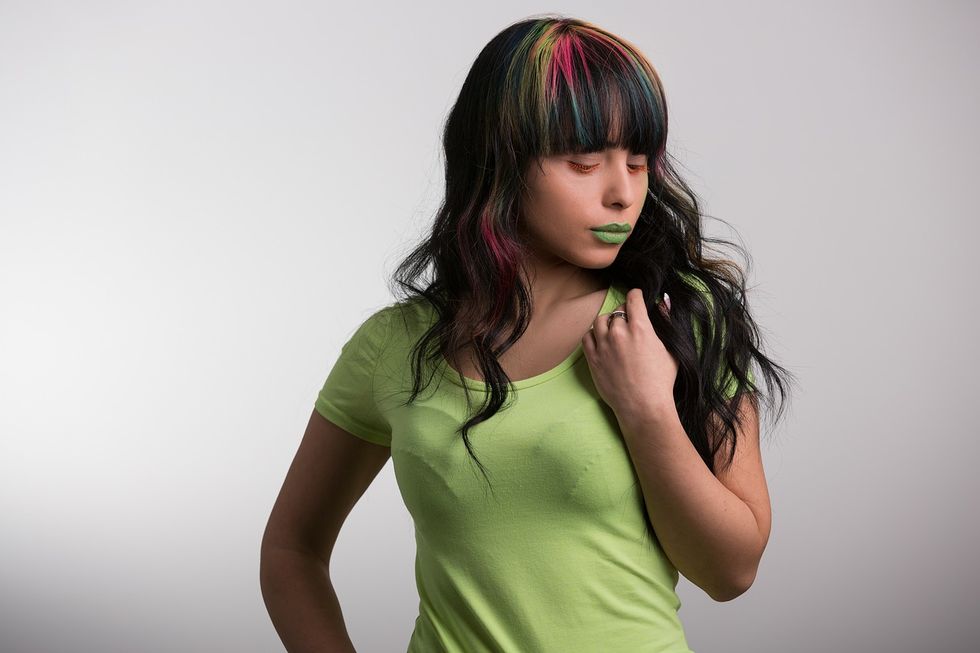The feminist attitude about makeup is in the middle of a decades-long upswing. It is being reclaimed by young women as a form of self-expression. It is a form of armor, warpaint, for women who use beauty as a form of self-expression and power. Makeup, as seen by many of our 1960’s bra-burning feminist foremothers, was seen as a tool to force women to conform to traditional gender roles. Starting in the 1970’s, women began experimenting with more non-traditional forms of makeup, using it as a form of self-expression.
Brands like Maybelline and Avon released bright eyeshadows, heavy eyeliner and mascara, and bold lipstick. In the 1980’s, the legendary makeup brand MAC was started and furthered the trend of colorful eyeshadow and lipstick. Contouring, which was popularized and inspired by drag queens, became the standard for supermodels, and later, the general public.
While makeup trends have changed over the years, ideas and perceptions about makeup have changed as well.
Women having complete agency over their bodies is one of the main tenets of feminism, and makeup gives women further agency over their bodies by supplying further choices that can be made. Wearing makeup is the same as choosing what clothes to wear, in that it gives a woman more control over their appearance. Whether or not a woman chooses to wear makeup are both feminist acts as they are both ways to have control over one’s own body.
The millennial attitude towards makeup also includes men wearing makeup. Some of the most popular makeup artists online are men, and many makeup companies, such as MAC and Maybelline, were founded by men. Men wearing makeup has become less taboo and has given men more choices to make about their appearance, giving them more agency over their bodies.
Some might argue that wearing makeup is not a feminist act because wearing makeup often means adhering to traditional beauty standards set out for women. Women who choose not to wear makeup are criticized for their appearance and called lazy and ugly. Women who do choose to wear makeup are taken more seriously and are seen as more beautiful and more professional.
Beauty standards have changed while also becoming less strict. A wider range of features are considered beautiful now than ever before. Some makeup and skincare brands, such as Glossier and Clinique, specialize in the natural, no-makeup look, providing a level of makeup that's comfortable for everyone.
Millennial feminists have changed the attitude surrounding makeup. As makeup became more readily available, it became a mode of self-expression rather than a plain, cookie-cutter routine. A full face of makeup could mean going to a photoshoot, or just going to class. This wide range of choices that women have as to how they present themselves means further freedom for women and men who choose to wear it.

















